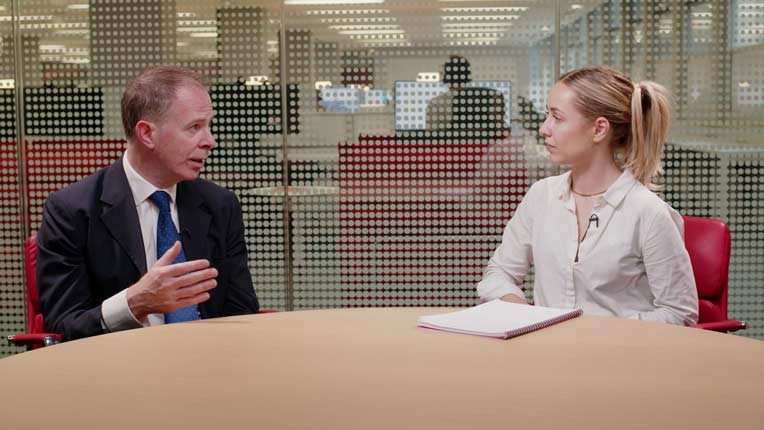Holly Black: Welcome to the Morningstar series, "Why Should I Invest With You?" I'm Holly Black. With me in the studio is Alasdair McKinnon. He is the Manager of the Scottish Investment Trust (SCIN).
Hello.
Alasdair McKinnon: Good morning, Holly.
Black: So, welcome to the studio. What is the Scottish Investment Trust? What do you do?
McKinnon: Well, we're high conviction global contrarian investors. And actually, we were founded in Edinburgh in 1887. Now, what this very long-term perspective gives us is a view that asset markets in general and equities, which we invest in, are cyclical. They go in, out of favour and back into favour and there's a good time to buy and a good time to sell and nothing lasts forever. There are all sorts of examples from history when people thought certain conditions would last forever and they haven't.
So, basically, what we really focus on is, we think that markets are emotional. When things are going well, people get more and more excited the higher stock prices go up. And likewise, when things are doing badly, people get more and more depressed. Now, where we think the opportunity lies is in that sort of depression phase, because people get irrationally depressed and that's where we think you can find genuine undervalued investments potentially. We're less keen on the things that have already done very well, not because they can't keep going because obviously they can, but it's more that everyone is excited about these stories already and they have to keep delivering to actually produce a profit for their investors.
Now, the way we actually invest is, we've got three investment categories which are called – the first which we're best known for is called ugly ducklings, then we've got changes afoot and finally, we've got more to come. Now, the ugly duckling category is very self-explanatory, but really these are companies that have done badly for reasons that are very understandable and everyone is well aware of. But what we think is, these stocks that look very undervalued can get less undervalued with an incremental improvement. And that in a nutshell is how we invest.
Black: That all sounds like it makes sense, but I'm guessing is a bit more difficult to carry out than it all is in theory?
McKinnon: Of course. I mean, it's never easy and you know, that's what makes investing hard. The thing that's probably hardest is to fight your own emotions. I mentioned how markets are emotional. Well, we are human beings as well and it's obviously difficult when you read about something that's not doing well to remain objective and say, well, look, can this recover? Or likewise, when something is doing really well, to step back a level and say, you know, can this really dominate the whole world as people seem to be suggesting?
So, you're right. It's not as easy as it looks. But the way we try and do it is, we're aware of the emotional weaknesses that all investors have and we try and focus our efforts to avoid that.
Black: So, one of the areas that has been really popular in recent years is technology and some of those stocks have shot out of the lights. But you are one of the few people that is not backing technology. Why is that?
McKinnon: Yeah. Well, we sold out – you know, the last of our, I suppose, what you might call a hot tech stock, the best part of a couple of years ago. Now, look, we fully understand the technological revolution that's taken place in the last decade really. The smartphone revolution has really transformed the way we interact with the internet and the way we interact with people and businesses and so on. So, we completely get that. The trouble is, there's only so many areas that actually make a profit for the investors, or for the companies, which if I could generalise them, it's advertising, internet advertising, it's things like gaming has been profitable as well and then it's actually producing the hardware itself.
Now, what we see happening just now is people have extrapolated what have been good conditions and turned them into perpetual profit stories that can do no wrong. Now, that might will be the case for some businesses for an extended period, but eventually, everything does mean revert, we think. Now, what we are seeing with the profitable areas just now is, we're seeing new regulation coming in. So, internet advertising in particular is particularly under the cosh in terms of both monopoly status and I guess the whole wild west environment that's happened.
And then, if you look at the hardware cycle itself, i.e., smartphone sales, they've clearly peaked. So, we see headwinds coming and the thing that really concerns us, I suppose, is people have extrapolated the good stories and applied them to new businesses that have quite strong growth models but really no real plan to turn a profit. You know, you've seen all these – these various app-based companies have launched of late – have IPO-ed of late in fact. Now, these businesses – there's nothing wrong with buying a business like that if it's valued in a sensible way. But what we see is, these businesses have valued multiple times what we might consider a more mundane business valued at which we know is profitable and which we're pretty certain will still be here in 20 years. So, that's why we're cautious in that area.
Black: Cool. Well, thank you so much for coming in and telling us what it's like to be a contrarian. And thanks very much for joining us.




























